‘What we have said makes it clear that music possesses the power of producing an effect on the character of the soul.’ (Aristotle, The Politics, 1340a)
‘It is a pervasive idea in Western culture that music possesses social and emotional content, or that its semiotic codes are linked to modes of subjective awareness, and in turn, social structures. Equally pervasive, however, is the view that music’s social force and social implications are intractable to empirical analysis. At the level of the listening experience, for example, music seems imbued with affect while, at the level of analysis, it seems perpetually capable of eluding attempts to specify just what kind of meaning music holds and just how it will affect its hearers.’ (deNora, T. (2000) Music in Everyday Life. p. 21.)
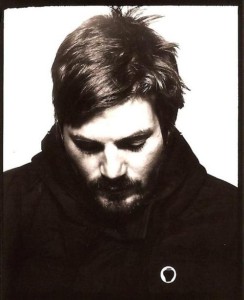 The effect of music and the kinds of meaning its structures might hold have long been an object of inquiry. Yet despite the best analytical efforts—from Ancient Greek philosophers to modern-day post-structuralist theorists, we may still experience a feeling of intractability, particularly when faced with a musical form that seems to teem with signification but isn’t inclined to peel to reveal. Exhibit A: the work of Chris Douglas, composed of often unalluring, sometimes conflicting, elements, seemingly designed to disorient in ways seldom comfy, let alone pleasurable. It undeniably affects, and means, however ineffable its effects and meanings. Sonic particles and musical fragments sluice through granular synthetic pools, found sounds rippling over the surface, the wreckage of rhythm sequences and industrial slurry dredged up in their wake. Wrought with some weird intelligence into compositions that aren’t ‘IDM’ or ‘electronica,’ ‘ambient’ or ‘modern composition,’ ‘analogue’ or ‘digital,’ while not excluding any sub-genre or sonority from its eclectic whole. After 20 years of unreadable communications, Douglas’s music remains willfully intractable. This profile-review adumbrates his 2013, bookending Dalglish’s current Niaiw Ot Vile with Scald Rougish’s Bytreqw, with Seaes’ Liesma in between. But first, some history…
The effect of music and the kinds of meaning its structures might hold have long been an object of inquiry. Yet despite the best analytical efforts—from Ancient Greek philosophers to modern-day post-structuralist theorists, we may still experience a feeling of intractability, particularly when faced with a musical form that seems to teem with signification but isn’t inclined to peel to reveal. Exhibit A: the work of Chris Douglas, composed of often unalluring, sometimes conflicting, elements, seemingly designed to disorient in ways seldom comfy, let alone pleasurable. It undeniably affects, and means, however ineffable its effects and meanings. Sonic particles and musical fragments sluice through granular synthetic pools, found sounds rippling over the surface, the wreckage of rhythm sequences and industrial slurry dredged up in their wake. Wrought with some weird intelligence into compositions that aren’t ‘IDM’ or ‘electronica,’ ‘ambient’ or ‘modern composition,’ ‘analogue’ or ‘digital,’ while not excluding any sub-genre or sonority from its eclectic whole. After 20 years of unreadable communications, Douglas’s music remains willfully intractable. This profile-review adumbrates his 2013, bookending Dalglish’s current Niaiw Ot Vile with Scald Rougish’s Bytreqw, with Seaes’ Liesma in between. But first, some history…
Douglas has about him the spirit of the Loner, the Non-conformist, the Outsider. Hard to imagine now such a stubborn single-minded soul in an early-90s SF setting, DJ-ing and partying with Jonah Sharp (Spacetime Continuum), Mike Banks (Underground Resistance) and James Stinson (Drexciya). 1992 saw his first full appearance on the musicianly radar, under the alias O.S.T. with the future-basing Basilar, a prescient contribution to the convergence of vectors towards what was to become ‘IDM.’ Mid-90s Spacetime Continuum remix album, rEMIT rECAPS, found him sharing space with Autechre, who later co-opted him onto their Confield tour (2001) and ATP festival curation (2003). Profile-wise, the last decade has been light and shade for Douglas, seemingly mostly shade. We learn of a ‘tragic event’ (unspecified) that prompted a move to Berlin where he’s remained since. In 2004 a new nomenclature, Dalglish, was assigned to otJohr, and sustained for Ideom (2008), and Benacah Drann Deachd (2011). In early 2012, to commemorate 20 years since his debut, UK/Japan-based label ICASEA released a 4-track EP and limited double tape, Bardachd/Auen Ansici under anagrammatic alias, Scald Rougish.
Niaiw Ot Vile, hosted as it is by electronic music label du jour, PAN, looks set to bring Douglas to a wider specialist audience. Dedicated to an old music friend, Isolate Records founder, Wai Cheng (Optic), it bears more than mere commemorative resonance. ‘Diving into difficulty, appreciating being alone with little security or support, looking for contentment in constant attempts to establish a connection to something which may not even be real, and finding at the end that there’s still hope and drive. It’s better to be there than nowhere, not existing at all.’ (Douglas, interview) Such documentary evidence helps illuminate the affective punch packed, even at its chillier borderlands, by these pieces. They’re shot through with strange sublimations, oblique poetics, and ill/all-usion—language rifts, time shifts, and memory drifts, existential angst (previous Benacah Drann Deachd = ‘farewell cursed decade’ in mangled Gaelic), and difficult intimations (Waetka apparently so named after a woman he shared a fleeting bar encounter with); measured tempo and pitched tone ever prone to insurgents—crackling abrasion and atonal pulls; doleful harmonic cadences prey to quasi-industrial strength percussives, caustic sequences, and sudden fits. Even in pockets of quietude, a sense of imminent unquiet lurks with fizzing intent. Oblique rhythms, DSP collusions, and eldritch promptings push at the boundaries. Autechre might be invoked, but only as kindred questing electronic music spirits. This is another music from a different kitchen—ingredients more organic and harmonic, piano and strings even figuring amid clangorous bitcrush. Overall, Niaiw Ot Vile is part slow’n’glowering isolationIDM, part metamorphic electroacoustics. A mood-slalom—from abstract to appeasing in going from “Noscrlu” to “Viochlm,” both caustic and consonant within “Venpin” to moving micropolyphony in the standouts, “Ciaradh” and “Oidhche.”
‘(Would you like to be more “popular” or do you like the place where you are now?)
Being that the state of today’s scene has changed from my time, I am not sure what I want. I do find it very strange after all this time I still remain on the outside of things that people are doing that I have done way back before. I didn’t choose to be here – I just followed what I saw and believed in. Suppose this is an outdated idea today…’ (Chris Douglas, interview)
[Release page] A new alias, Seaes, was inaugurated in April for Liesma, an album whose signifying concept, if such there might be, is again errant. There’s an appeal in one reviewer’s notion of its being a form of ‘autobiographical sound,’ with track titles formed of numbers seeming to refer to track position and a date, perhaps signalling an audio portrait of the artist’s inner state that day. Case in point: opener “01. 4.6” suggests a sense of portent with ominous bass and sporadic ticks—nervous, paranoid. NWW, Drumm, and Köner may be reference points—less familiar though just as relevant might be Ligeti and various brothers GRM. The sound world of Seaes is similar in the bloody-mindedness of its ideation, though its sound is sui generis. The sonic palette is resolutely bleak and unsettling, though the ice is thawed now and then by a certain spectral luminance. A machine music imbued with Mensch, as if emotion were channeled through circuitry via his own self-forged sounding lexis; a gestural mirroring of a complex of emotions—its often fractured nature a semiotic representation of seeking to hold on to something errant, to hold together something constantly disintegrating—most notable on “06. 08.6,” a queasy onrush of out of control biotics climaxing in visceral noise. The fragile melancholy of “12. 08.11” closes with a sense of hope and beauty—a poignant contrast to Liesma’s prevailing doom-laden tenor.
‘…love how its quite experimental but where as a lot of people making music like this can sound academic and soulless, his music has so much emotion to it.’ (We Are The Music Makers, Scald Rougish – Bytreqw, thread)
[Release page] Bytreqw, like its name, is, at first blush, Douglas at his most cryptic. A wilful cipher—a code that bodes ill for any would-be cracker, it takes in technoid rude mechanics, concrète mixer malfeasance, and cold prickly dark ambience. Live, semi-structured improv, shifting scuzz-strata, fractured samples and audio tics flicker round the sound field. A dynamic of turmoil, of tone and timbre in protean plate shift, briefly finding each other for a fleeting frisson of alignment before slippage. Audio-realia are warped and melded into musical matter as if entropy had been sampled. The elegiac tones of opener “FmoAN” almost lull despite their dissonance before jolting into the sub-atomic microcosmos of “E3tfsd”—particles fizzing and clanking, colliding and fragmenting, ramping up to a skittering peak before withdrawal; then “2begrorl” resumes with sequences stuttering and collapsing. “Spwfa” brings relief, albeit with a keening granular micro-symphony, then “Md.Fpj3kr” returns to dueling percussive fragments—of metal and other materials, hyper-real mechanical structures in breakdown. “Banaie” comes on like a headache-y field recording of post-industrial nonplace, while “Msksnp” has the malfunctioning machinery return to a riot of puttering and clattering, with slow-building emergent melodic gestures, however evanescent, hinting at a human would-be controlling element. “Laihegaine” ends the album with unnerving drones diving into an inky void. Near-obsessive at times in its asceticism, Bytreqw is certainly not out to make any friends along the way, bespeaking hostile spaces, fearful asymmetries, inhuman engineered surfaces with an all-too-human core. Brief consonant moments strike as if brief glimpses of enlightenment on some otherwise doomed quest for inner peace amid chaos. At the end of it all, one is left with the feeling that this might be the core meaning of all Douglas’s work.
Niaiw Ot Vile is available on PAN, Liesma on Cataclyst, Bytreqw on ICASEA.






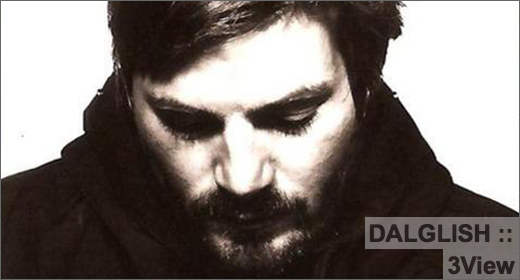




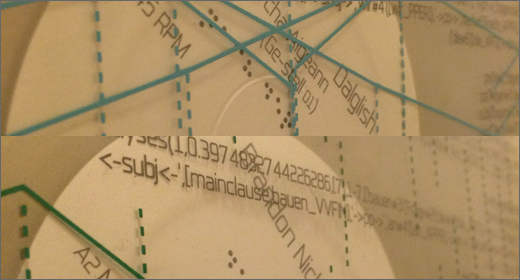

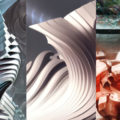
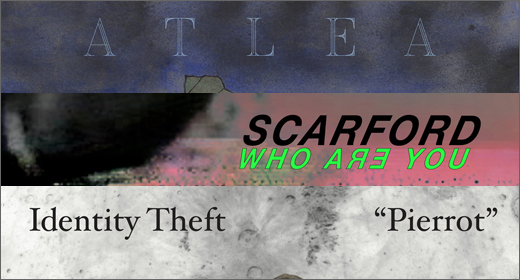
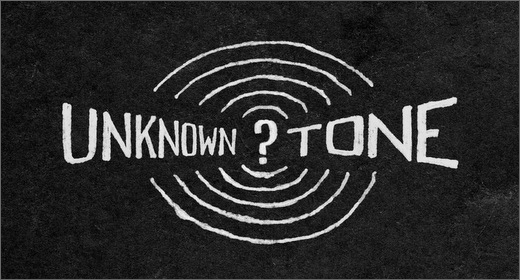
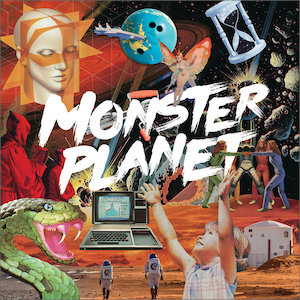

![Beyond the Black Hole :: Protonic Flux EP (Nebleena) — [concise]](https://igloomag.com/wp/wp-content/uploads/2025/04/beyond-the-black-hole-protonic-flux_feat-75x75.jpg)
![H. Ruine, Mikhail Kireev :: Imagined / Awakenings (Mestnost) — [concise]](https://igloomag.com/wp/wp-content/uploads/2025/04/h-ruine-mikhail-kireev-imagined-awakenings_feat2-75x75.jpg)


![Squaric :: 808 [Remixes] (Diffuse Reality) — [concise]](https://igloomag.com/wp/wp-content/uploads/2025/04/squaric-808-remixes_feat-75x75.jpg)




